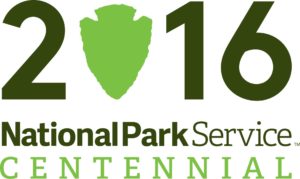The School of Global Environmental Sustainability (SoGES) will host a panel discussion on the “National Park Service Centennial: Lessons for the next 100 years” from 5 to 6:30 p.m. on Wednesday, April 20, at Avogadro’s Number in Fort Collins.
 President Woodrow Wilson signed the National Park Service Organic Act on Aug, 25, 1916, creating a new federal bureau within the Department of the Interior dedicated to protecting the current and future national parks of the United States of America. Today, there are more than 20,000 National Park Service employees who care for more than 400 U.S. national parks. The mission of the National Park Service is to “preserve unimpaired the natural and cultural resources and values of the National Park System for the enjoyment, education and inspiration of this and future generations.” This year marks the 100th anniversary of the National Park Service. Lessons learned over the past century will be important for the future of the National Park System. Wildlife management, climate change, water issues and pollution are just some of the many problems facing the national parks in the near future.
President Woodrow Wilson signed the National Park Service Organic Act on Aug, 25, 1916, creating a new federal bureau within the Department of the Interior dedicated to protecting the current and future national parks of the United States of America. Today, there are more than 20,000 National Park Service employees who care for more than 400 U.S. national parks. The mission of the National Park Service is to “preserve unimpaired the natural and cultural resources and values of the National Park System for the enjoyment, education and inspiration of this and future generations.” This year marks the 100th anniversary of the National Park Service. Lessons learned over the past century will be important for the future of the National Park System. Wildlife management, climate change, water issues and pollution are just some of the many problems facing the national parks in the near future.
Our panel of CSU experts will discuss the history, successes and setbacks of the National Park Service over the last 100 years. They will look at the lessons learned in the past century and how they can be used to protect and ensure the future of the National Parks in the United States.
Panelists include:
• Ruth Alexander, Department of History, CSU
• Jim Barborak, Center for Protected Area Management and Training, CSU
• Jill Baron, U.S. Geological Survey and Natural Resource Ecology Laboratory, CSU
• Jason Sibold, Department of Anthropology, CSU
The discussion will be moderated by Gene Kelly, assistant director for Research and Development at SoGES, professor in the Department of Soil and Crop Sciences at CSU, and interim CEO for the National Ecological Observatory Network.
The panel discussion—part of a Managing the Planet series—is free of charge and open to the public.